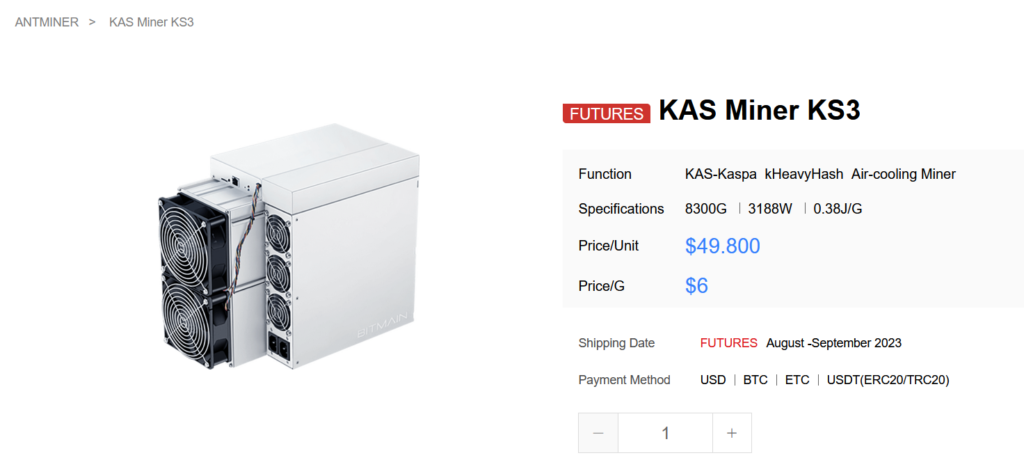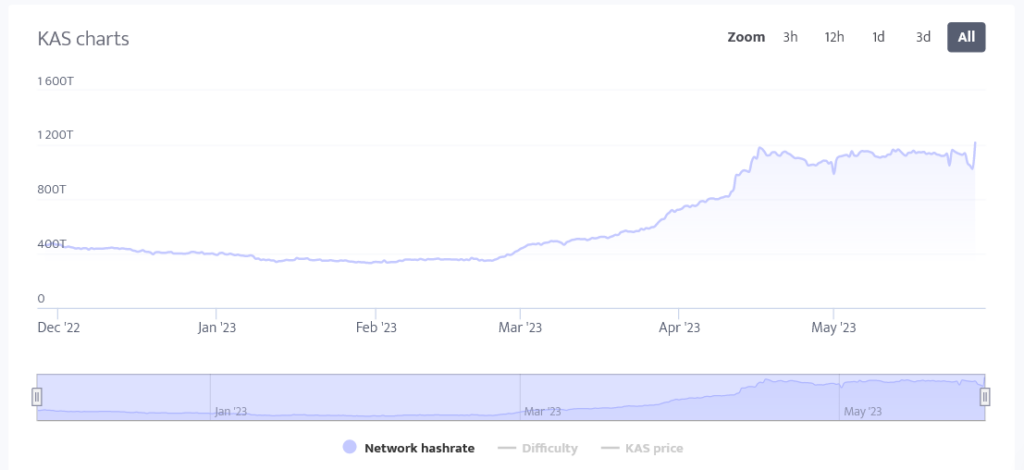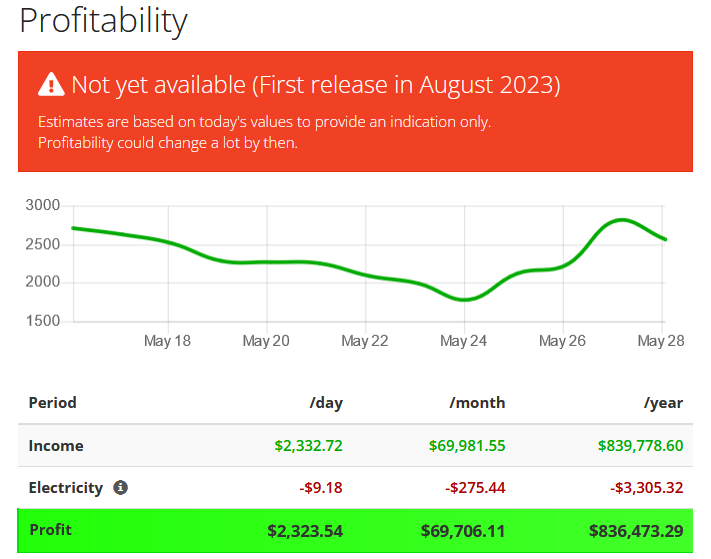As a professional provider of mining hardware, we observe the market very closely and would like to offer our customers comprehensive advice. Recently, we have received a lot of customer inquiries about the Bitmain Antminer KS3. An ASIC miner for the cryptocurrency KASPA (KAS).
We advise our customers not to purchase this device at this time. For this reason, we will not be offering KS3 miners for sale in the near future.
Why we do not offer Antminer KAS Miner KS3
Currently, the KAS3 miner is offered by Bitmain for 49,800 USD as a pre-order:

If we take a closer look at the network hashrate of the Kaspa network we notice that the mining performance in the network skyrocketed:

The current hashrate of the entire network is thus around 1210 TH/s. From the graph above, we can see that Bitmain probably started mining in March 2023 with numerous antminers. The further increase of about 66% suggests that Bitmain currently has about 95 KS3 miners – with 8.3 TH/s each and thus a total of 800 TS/hs (rounded) – in use.
KASPA network may no longer be decentralized
We must therefore assume in the worst case that the KASPA network is no longer decentralized, if Bitmain actually provides and thus controls 800 TH/s of the total network performance of 1200 TH/s.
In this case, a 51% attack and takeover of the network would also be conceivable.
So why no buy recommendation?
The current profitability for KS3 Miners is remarkable (according to asicminervalue):

Thus, a profit of 2300 USD per day and about 70,000 USD per month is reported.
However, if the network is indeed currently mostly controlled by Bitmain, the actual value of KAS should go towards 0.00 USD.
However, in the event that the price value is assumed despite the takeover of the network, the question arises whether the price will not collapse shortly after delivery. As a reminder, 95 miners already correspond to a performance of about 800 TH/s, thus the entire current network performance of 1200 TH/s can be provided by 145 miners.
Assuming Bitmain were to ship only 1,450 more units to customers (which would be roughly 10 times the current global hashrate), profitability would drop by a factor of 10. However, it is likely that Bitmain will ship more than 1,450 miners.
If we deviate and assume that Bitmain would ship 5,000 devices, profitability would have to drop by a factor of 34. At the current monthly profit of about $60,000, profits would suddenly drop to just $2,000 per month.
Bitmain walks the line
It could therefore be that Bitmain is currently intentionally using very few miners to mine itself in order to keep profitability artificially high. The price of 49,800 USD, which is too high in our opinion, would otherwise hardly be demanded.
Bitmain thus consciously accepts that all those who pre-order this miner are exposed to a risk of extremely high losses. Since the topic is extremely complex and influenced by many factors, this is hardly apparent beforehand, especially for new investors, and the supposedly high profitability motivates many to place a pre-order. This inexperience could possibly be shamelessly exploited by Bitmain. Of course, we cannot accuse Bitmain of fraud, since experienced miners certainly know how profitability is calculated and would refrain. However, the very high pre-order price of 49,800 USD shows that Bitmain is definitely only targeting inexperienced new investors here (who could possibly lose a lot of money).
Therefore, we strongly recommend that you get a free consultation from us before investing in crypto mining. In retrospect, bitcoin mining (including ASIC MINER HOSTING) has always been the best decision and should be for the future.
The assumptions made here are derived from publicly available data. We would like to emphasize that we cannot accuse Bitmain of any illicit behavior and that it is merely a possibility why the hashrate on the network has increased so much. It is also possible that the increase in the hashrate on the Kaspa network occurred due to other circumstances and that our assumptions are incorrect.



